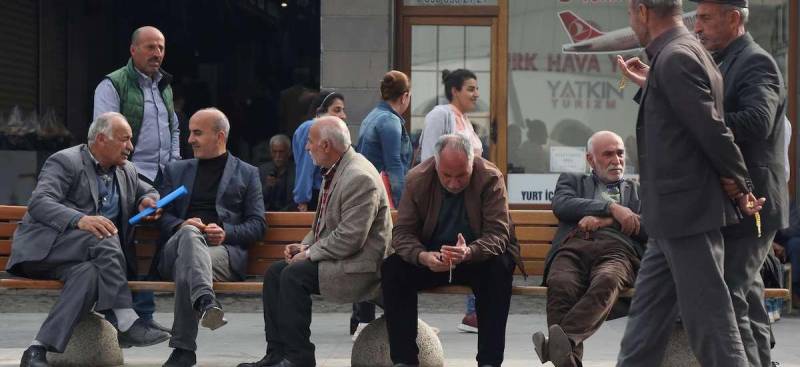The streets of Diyarbakır, Turkey’s largest Kurdish-majority city, are crowded despite the COVID-19 outbreak. Half the shops are closed, yet the other half remain open. The city is managed by a state-appointed official, like most of the other Kurdish-majority cities in Turkey. Selçuk Mızraklı, the elected mayor of Diyarbakır, and most of the other Kurdish mayors have been imprisoned over allegedly “supporting terrorist groups”.
During the state of emergency that followed the 2016 coup attempt, 20,000 Turkish health workers, including 3,315 doctors, were removed from their jobs due to accusations of terror links. Many of those who lost their livelihoods were Kurdish doctors, nurses and health workers.
A few weeks ago, I spoke with Mehmet Şerif Demir, the chairman of Diyarbakır’s Chamber of Medicine, who has also faced numerous court cases on terror charges. He told me that there were many suspected COVID-19 patients in Diyarbakır, but the hospitals are not equipped to test for coronavirus infections. Tests are sent to Ankara for processing, but this can take days.
Because the state forbids local governments from releasing infection numbers in their jurisdictions, he did not give me the number of COVID-19 patients or further information on what is happening inside hospitals. He simply said: “I can’t.”
Since 23,000 people returned from pilgrimage to Mecca, Saudi Arabia, in the early days of the pandemic, the coronavirus has spread across Turkey’s Kurdish cities. The government decided to close Turkey’s borders with Iran and Iraq in February, but this also came too late, and by that time many infected people had passed from Iran, a coronavirus hotspot, to Turkey’s east and beyond.
I called a friend who is a doctor at a state hospital. She said she was afraid to go to work, because the precautions taken in hospitals have been insufficient and health workers are not provided with protective equipment and gloves, leaving doctors unable to protect themselves from the virus.
Closing children’s crèches without providing alternatives has caused another big problem for people who have to go to work during the pandemic, such as doctors, nurses, police and municipality workers. My doctor friend told me that finding someone who can take care of her two small children has made every day a challenge.
Later, I called another doctor from Van, a mainly Kurdish city on the border with Iran, who asked me not to use his name. He said that it has been hard to control the border with Iran and refugees keep finding a way across. The number of coronavirus patients in Van hospitals has been high, but he also said he could not give any figures.
After the collapse of the peace process between the Turkish state and the banned Kurdistan Workers Party (PKK) in July 2015, fighting broke out again in many Kurdish provinces, this time in urban centres. Many Kurdish cities were demolished during military curfews and armed clashes, leaving millions of people homeless.
State administrators were appointed to replace elected mayors in dozens of pro-Kurdish municipalities. Almost all Kurdish media outlets – even a Kurdish children’s channel – have been shut down. Kurdish civil society organisations were closed by the government for allegedly supporting terrorist groups. Thousands of Kurdish teachers and doctors were fired from their jobs in the region. More than 10,000 members, parliamentarians, and even the co-presidents of the pro-Kurdish Peoples’ Democratic Party (HDP) have been imprisoned.
Women’s centres, cultural centres, food banks, Kurdish art centres, Kurdish language associations and many more institutions have been closed by the government. Even some Kurdish football clubs have been closed. Today, there is no strong organisation or leader left that can address the Kurdish community at a time of crisis like the coronavirus pandemic.
In the last five years, the state launched a war against the Kurdish language. Kurdish courses were closed, Kurdish language departments were closed, optional Kurdish lessons were cancelled. Kurdish names were removed from public parks, streets and every corner of our cities. Kurdish cultural and linguistic symbols were destroyed. All public billboards have been turned to Turkish.
After COVID-19 broke out, I launched a solidarity campaign with the poor neighbourhoods of my city. While distributing food packages in the Sur and Bağlar districts, I saw many public billboards giving information about the coronavirus measures. But they are all written in Turkish.
Nearly 70 percent of the districts’ inhabitants speak Kurdish, and many do not know Turkish, so they have no idea about what these public billboards tell them about the precautions they need to take against the pandemic.
Today, there are not enough tests, not enough doctors, no civil society, no mayors, and not enough measures to tackle the coronavirus in Kurdish cities.
